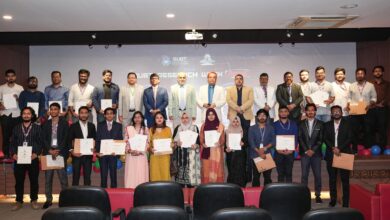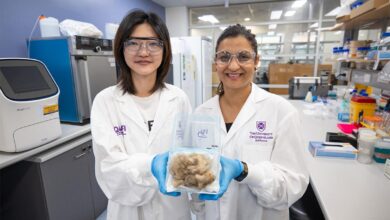Thammasat researchers developed the LAW-U chatbot

With sexual violence widely occurring in Thai society and the problem of accessing various assistance is the source of the research study “LAW-U: Legal Guidance Through Artificial Intelligence Chatbot for Sexual Violence Victims and Survivors”. In Thai, “LAW-U” is pronounced similarly to “Ror-Yuu” meaning “I will wait for you,” which reflects the chatbot’s unconditional support to its users. It was invented by Worada Sokatiyanurak, Nittayapa Klangpornkhun, Adirek Moolthuli, Pongphan Pienpanich, Prof. Dr. Lalin Korwutthikulrungsi, Nantawat Saksakulkunakorn, Pornkanok Chairuangsri and Assoc. Prof. Dr. Jaturong Tantibundit, researchers from Thammasat University. The objective of the research study is to create and develop a virtual chatbot that can provide legal advice to survivors of sexual violence of all genders, ages and sexual orientations.
The highlight of the LAW-U chatbot is that it provides service to all users equally and gives legal advice to users without special privileges, being neutral and accurate, taking into consideration personal details, not putting pressure on users in identifying their genders, not requiring to mention the user’s full name or occupation, meaning users can maintain their anonymity. The advice given by LAW-U will closely resemble the user’s situation, thus giving the user complete convenience in consultation.
This research is the first ever study of a chatbot model for sexual violence law counseling in Thailand. There are things to consider as follows:
1.Most model development consists of a process of direct comparison with user data similarity scores and matching Supreme Court cases which is accumulated through the identification of frequently encountered keywords. Although adding and using synonyms increases accuracy, this expanded model’s training methods on the other hand can increase the matching accuracy even further.
2.Information gathered from cases in the Supreme Court which is only publicly-available information. Therefore, some information is missing due to the confidentiality of the parties in the case or information not detailed and declared in the abbreviation. For example, there may be missing information regarding the sex of the victim and plaintiff, their age, and whether the victim has provided such information to the police, thus leaving a gap in LAW-U learning practice.
3.The chatbot is not available for users with visual impairments and some cognitions. However, LAW-U is hoped to be able to support all survivors of sexual violence. This target group will not be ignored, therefore future developments may focus on adding automatic speech recognition technology and voice-enabled conversation.
4.Information about sexual violence among LGBTQ+ should be given as equal importance as typical gender relationships. The LAW-U chatbot should be trained to prepare for text input and all possible situations when receiving information about incidents of sexual violence from users.
5.Collecting real-life test subjects can help adding new sets of information and expand the scope of LAW-U training situations to improve the accuracy of matching with unpredictable real-life events. The information received will be more current than information gathered from the Supreme Court in the past. It provides information on changing cultural contexts and social characteristics. It is an important part of education. This is because the latest amendments in legal provisions are more relevant to a progressing world.
6.LAW-U is currently available as an extension of legal professionals and is expected to not be able to replace these experts. However, this does not imply that chatbots should not be developed further to provide more detailed and accurate legal advice.
For future directions, the researchers wish to expand the chatbot to be able to communicate in English language as the study aims to have everyone in Thailand use LAW-U when receiving legal advice on gender-based violence.




